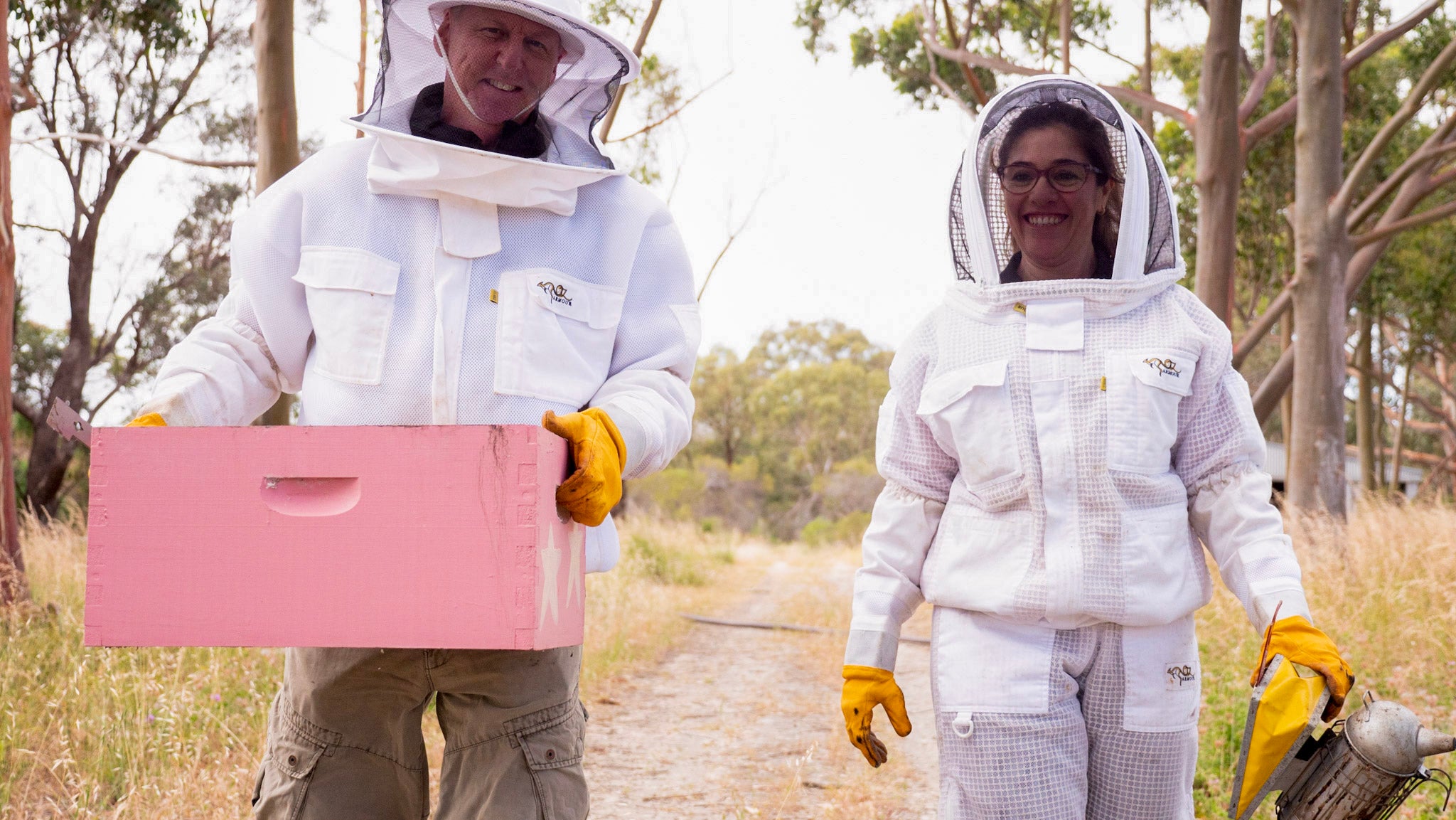Here at Beeautify, we have the utmost respect for all bees and the work they do for their hive, our ecosystem and our products. We keep our own honey bees and we advocate for ethical and sustainable beekeeping. Dani our co-founder is a certified beekeeper and trainer, who is very passionate about bees and their well-beeing.
What does it mean to be ethical and sustainable?
Ethics and sustainability are separate but interrelated concepts, although definitions may vary.

For beekeepers, ethics is fundamentally about ensuring the welfare of bees and their natural surroundings – treating them well, keeping them safe, and ideally preserving their natural way of life as much as possible.
Although also concerned with bee welfare, sustainable beekeeping considers the broader
picture – recognising that a sustainable relationship with bees is closely related to the health of the ecosystem as a whole and that our actions can have serious consequences.
To care for bees is to care for the world they live in.
Ethical practices
There are many aspects of ethical beekeeping, although it’s often more about what beekeepers don’t do.
Proponents of ethical beekeeping believe their impact on the lives of their bees should be minimal – that you shouldn’t be a farmer, so much as a shepherd. Similarly, they try to limit their impact on native flora and fauna. Left unchecked, introduced species such as honey bees (Apis mellifera) in Australia, can have a detrimental effect on the ecosystem.
Ethical keepers see their role as that of a protector, keeping the bees safe from stress and danger while letting them live their lives as naturally as possible.
For example, they:
- never take more than the hive can spare
- harvest only at the appropriate times of year
- avoid oversized hives to prevent overworking
- avoid synthetic honey replacements and unnecessary chemicals
- minimise swarming to prevent introduced species from competing with native fauna for shelter and resources.
Sustainable practices
A sustainable approach to beekeeping considers the relationship between bees, humans, and the ecosystem. In a sense, sustainable beekeepers aim to protect not just their own hives, but the wider bee population.
Perhaps the most important thing a beekeeper can do is be aware of the broader environment. To create a sustainable future alongside bees, keepers need to be aware not only of the needs of the bees but of the dangers they face.
- understand bees need a rich and diverse flowering plant environment to thrive. They plant a variety of flowers and trees to ensure they have enough to eat
- avoid pesticides, which can seriously harm bee populations
- keep native species where possible. They know that introduced species can harm the local ecosystem and spread disease
- adapt their hives to climate change. They recognise that bees are not prepared for rapidly changing temperatures.

Here at Beeautify, we love our honey and the wonders it does for your skin. We greatly admire the bees and pride ourselves on practising ethical and sustainable beekeeping.


